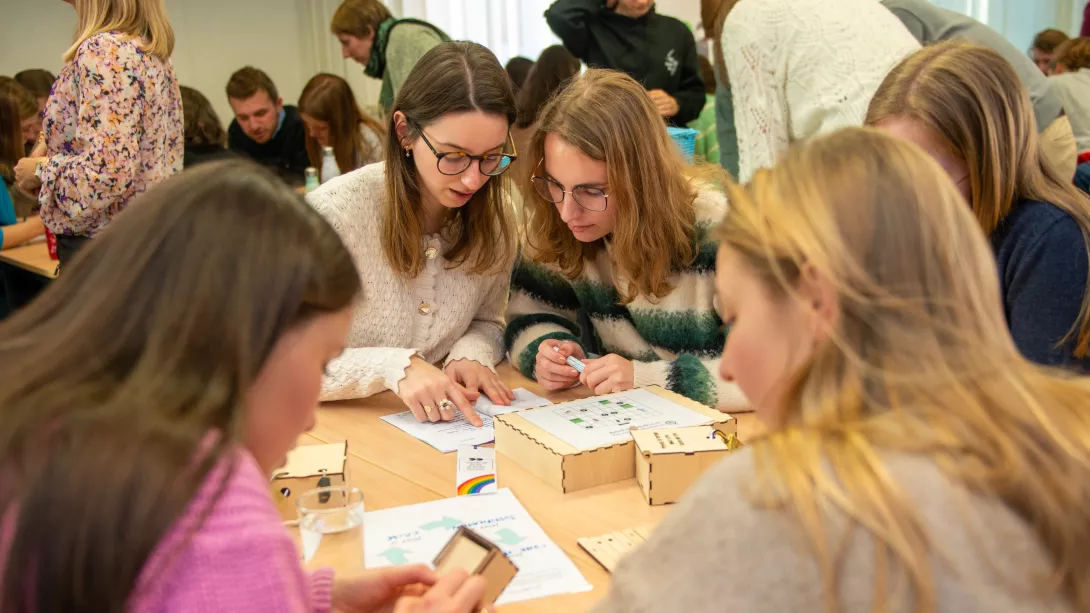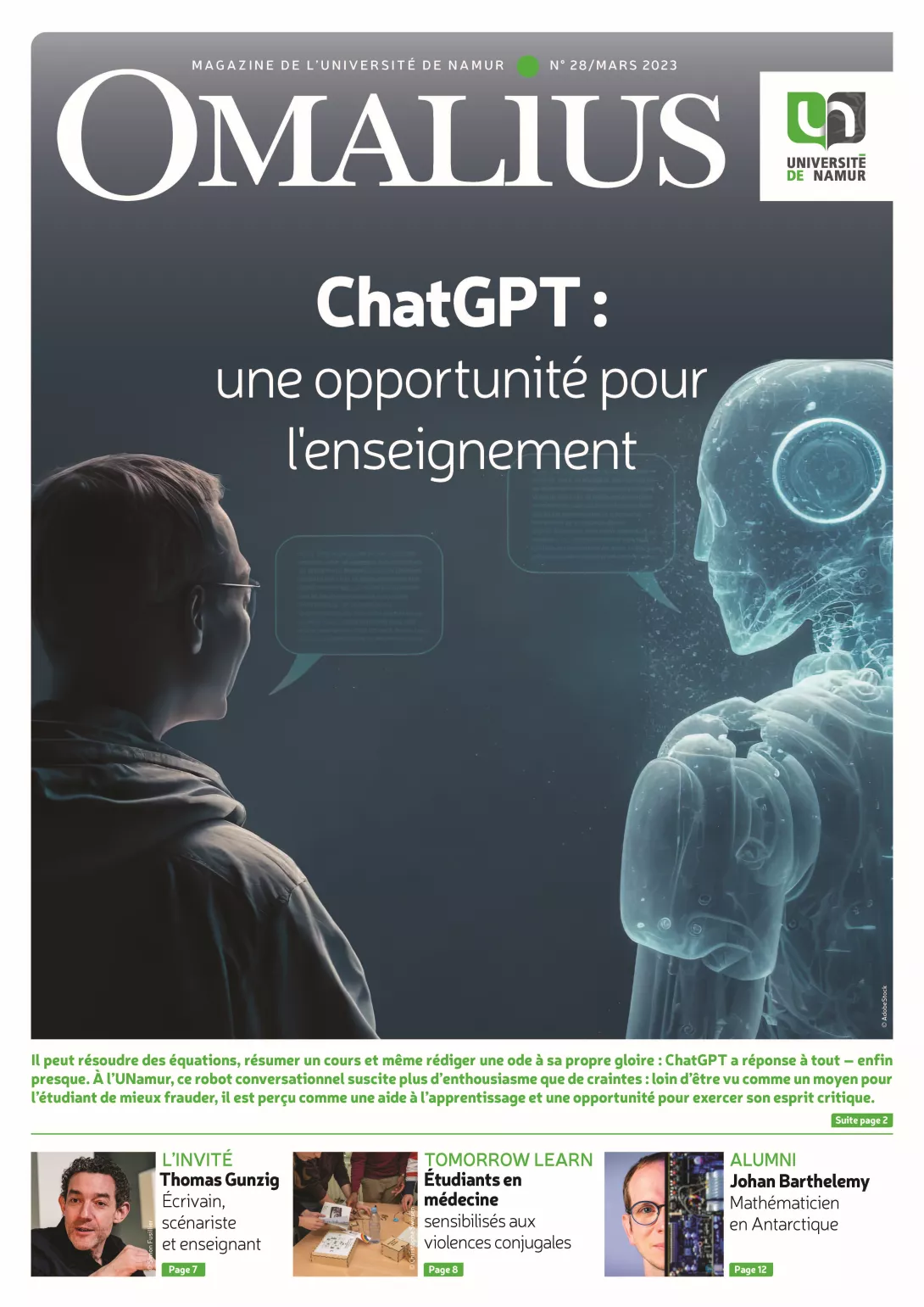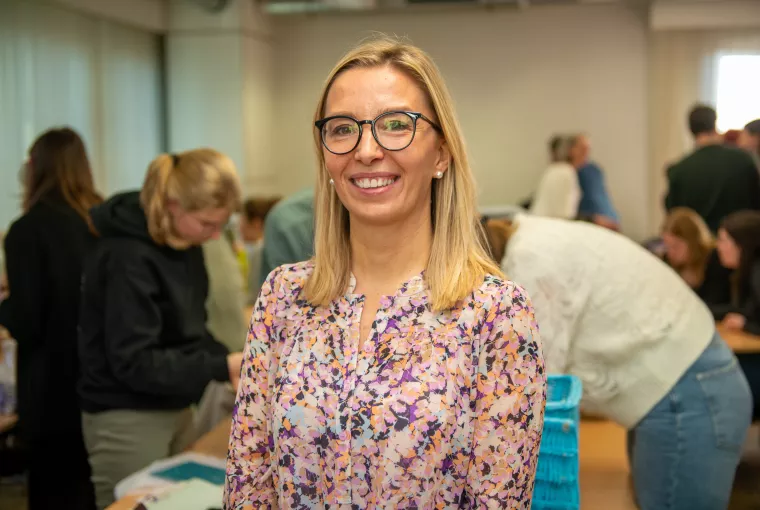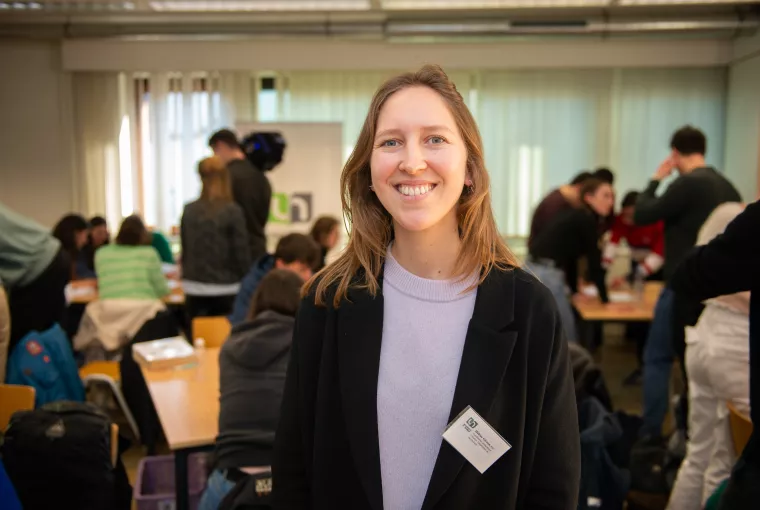
This article was written for the "Tomorrow Learn" section of Omalius magazine #28 of March 2023.
Eight closed boxes covered with a veil. Eight boxes for eight riddles to be solved, and for eight questions to be dared to ask when a health professional is faced with a person, he suspects of being a victim of domestic violence. In mid-February, the UNamur Bachelor of Medicine students, as part of their medical psychology course, attended a very special session, organised as part of their practical work on "professional communication in health". What was the objective? To make them aware of the theme of domestic violence, by playing an escape game. "We have already used this educational approach to train our midwifery students to detect situations of domestic violence in pregnant patients. But we know that to fight domestic violence most effectively and help the victims, an interprofessional approach is essential. Being able to raise the awareness of future doctors with our expertise as midwives is therefore a great opportunity to strengthen the complementarities in the care of patients", say Milena Jarosik and Sophie Evrard, midwifery teachers in the Hénallux paramedical department.
In their programme, the students of the Bachelor of Medicine at UNamur follow the medical psychology course, which includes 20 hours of practical work dedicated to the training of communication skills in health. They learn how to deal with complex issues such as patient anger, breaking bad news or detecting and addressing domestic violence. "The approach to this theme through this escape game seemed to us to be relevant to integrate into the training of our students. On the one hand, the playful aspect allows us to tackle this serious and sensitive issue by encouraging a certain distancing from the theme. On the other hand, by entrusting this awareness-raising to midwifery teachers, we demonstrate to our students the importance of interprofessional collaboration and communication in the field of patient care", explains Hélène Givron, PhD, pedagogical coordinator, and lecturer in the Department of Psychology at UNamur.
"The teaching of (inter)professional communication in health care is still not sufficiently present in most medical curricula. Yet 70% of medical errors are due to communication errors. For the past 6 years, UNamur has been developing this innovative teaching based on the recommendations of the scientific literature, while regularly evaluating it to improve it. The literature indicates that doctors do not feel sufficiently trained to identify and address domestic violence with their patients. The law of silence characterises these situations. However, thinking about domestic violence in the diagnostic hypotheses is an essential condition for identifying the people concerned. This escape game therefore meets this training need. It will subsequently be the subject of research to evaluate its effects", continues Hélène Givron.
An innovative project
This is an innovative project in terms of teaching, since the UNamur Faculty of Medicine is the only one in Wallonia to include this skill in its training programme from the baccalaureate level.
The escape game offered to students trains them to spot signs, words, or even behaviours in their patients that could reveal the presence of domestic violence and to act accordingly. The most frequent forms of violence are not the most visible and their impact on the health of women and their unborn children is very important. "The frequency of consultations and the bond of trust that is established with the woman during the period of pregnancy constitute a window of opportunity to lift the taboo and to free up speech on these situations. But it is still necessary to dare to ask the question, to ask the right questions and to know how to act afterwards", explains the UNamur-Hénallux educational team.
Developed in collaboration with Form@Nam and awarded the Solidaris prize in 2022, the escape game begins with a short video portraying a woman, who gives clues to solve the riddles in a mysterious box. "It's about Anna. Anna can be your sister, your co-worker, your best friend, your colleague", says Milena Jarosik. Each riddle has a specific educational objective based on national and international professional recommendations. Divided into small groups, the students have 45 minutes to "dare to ask the right questions" and solve the riddles. The session ends with a debriefing to mobilise knowledge on domestic violence, to capitalise on the key notions addressed in the riddles and to encourage a transfer into professional practice.
A committed collaboration
This initiative, implemented by the UNamur Faculty of Medicine and the Hénallux Paramedical Department, and supported by the Transitions research institute, positions the two institutions as committed to the fight against domestic violence. It is part of a more global strategy of collaboration between higher education actors: UNamur and Hénallux are partners in several training programmes, including the new Certificate in Gender-based Discrimination and Violence.
The pedagogic team



